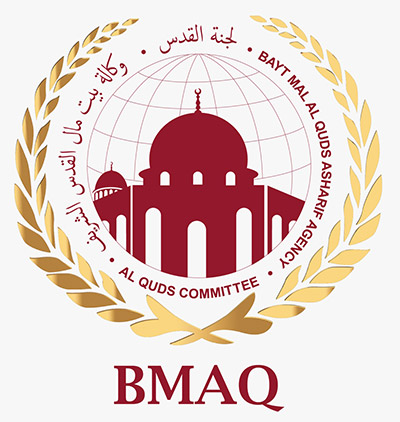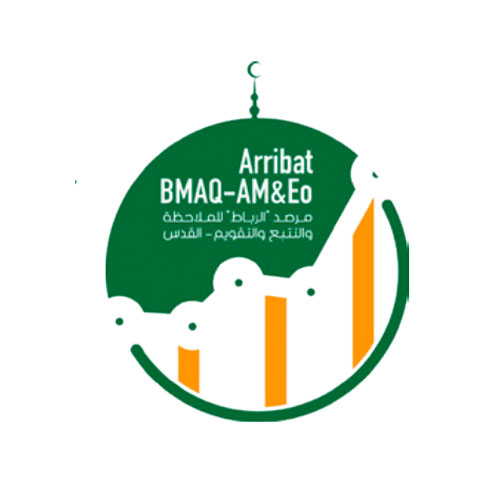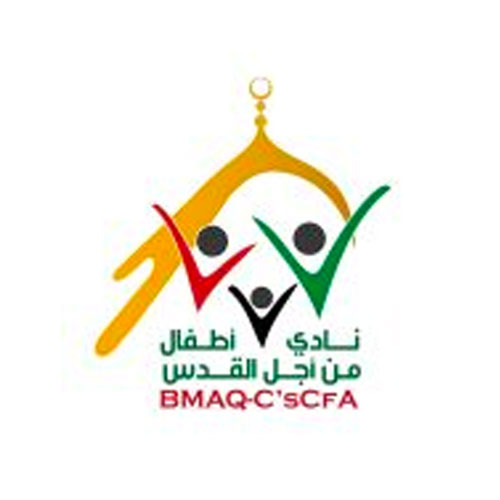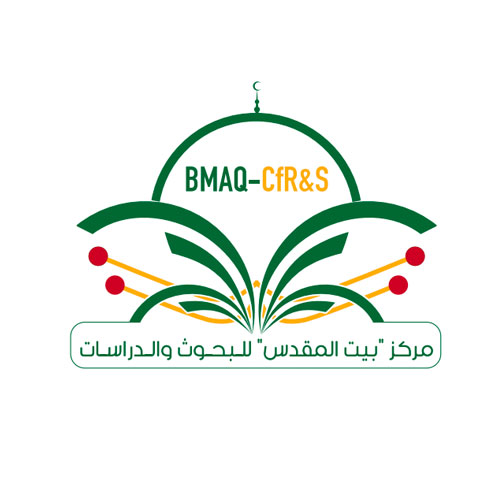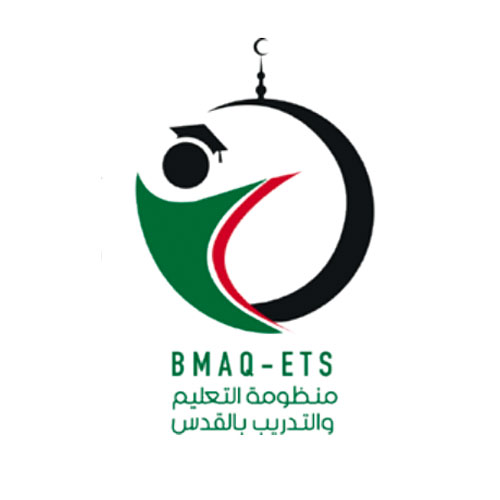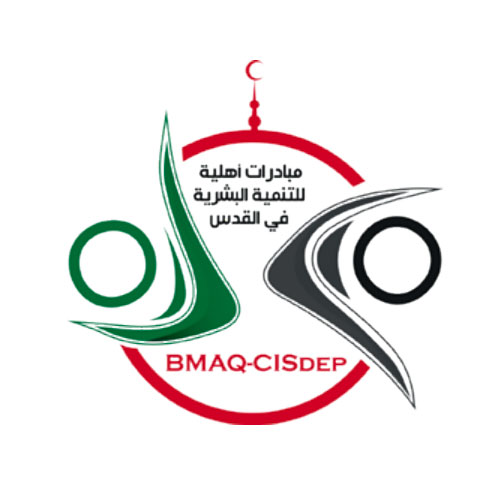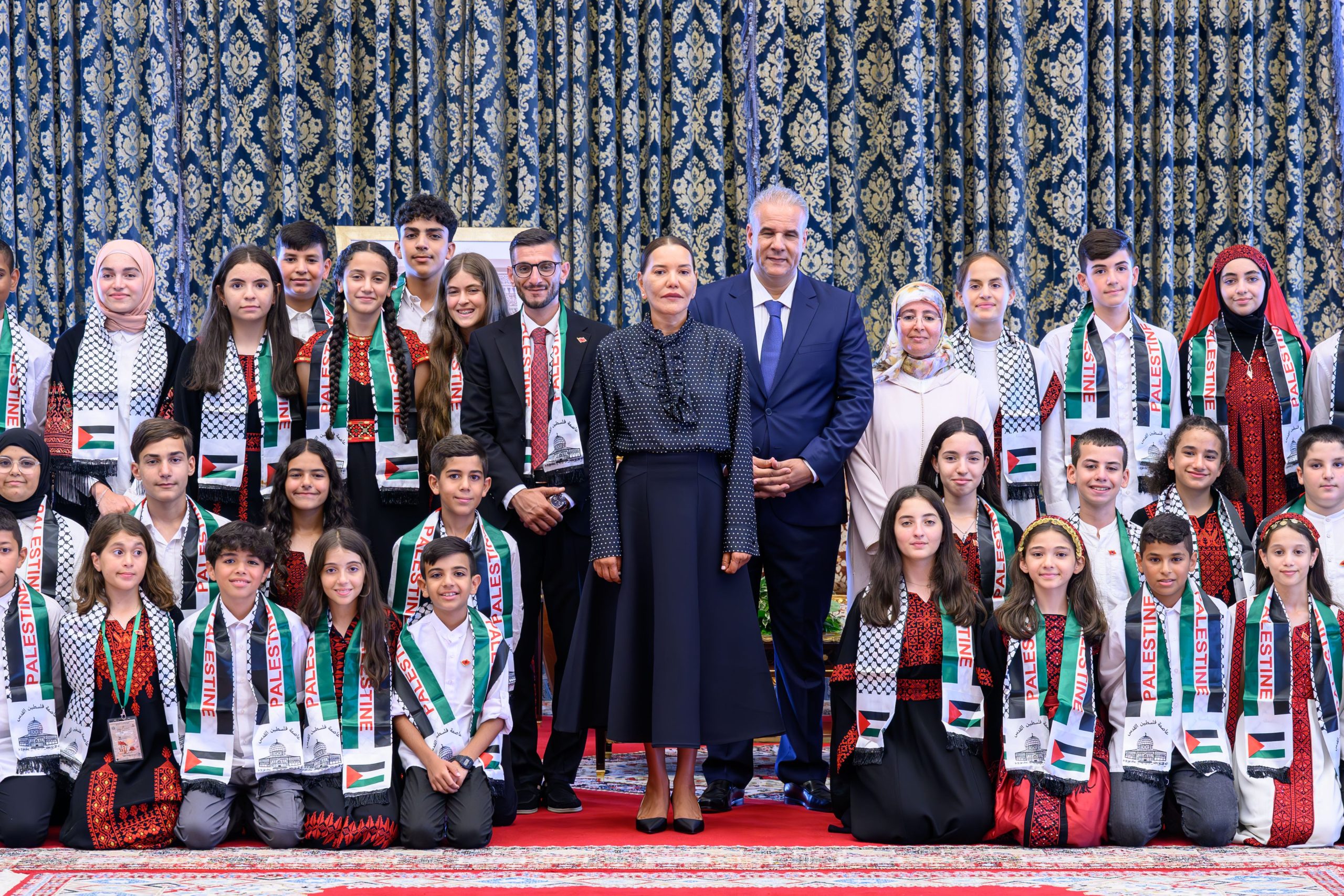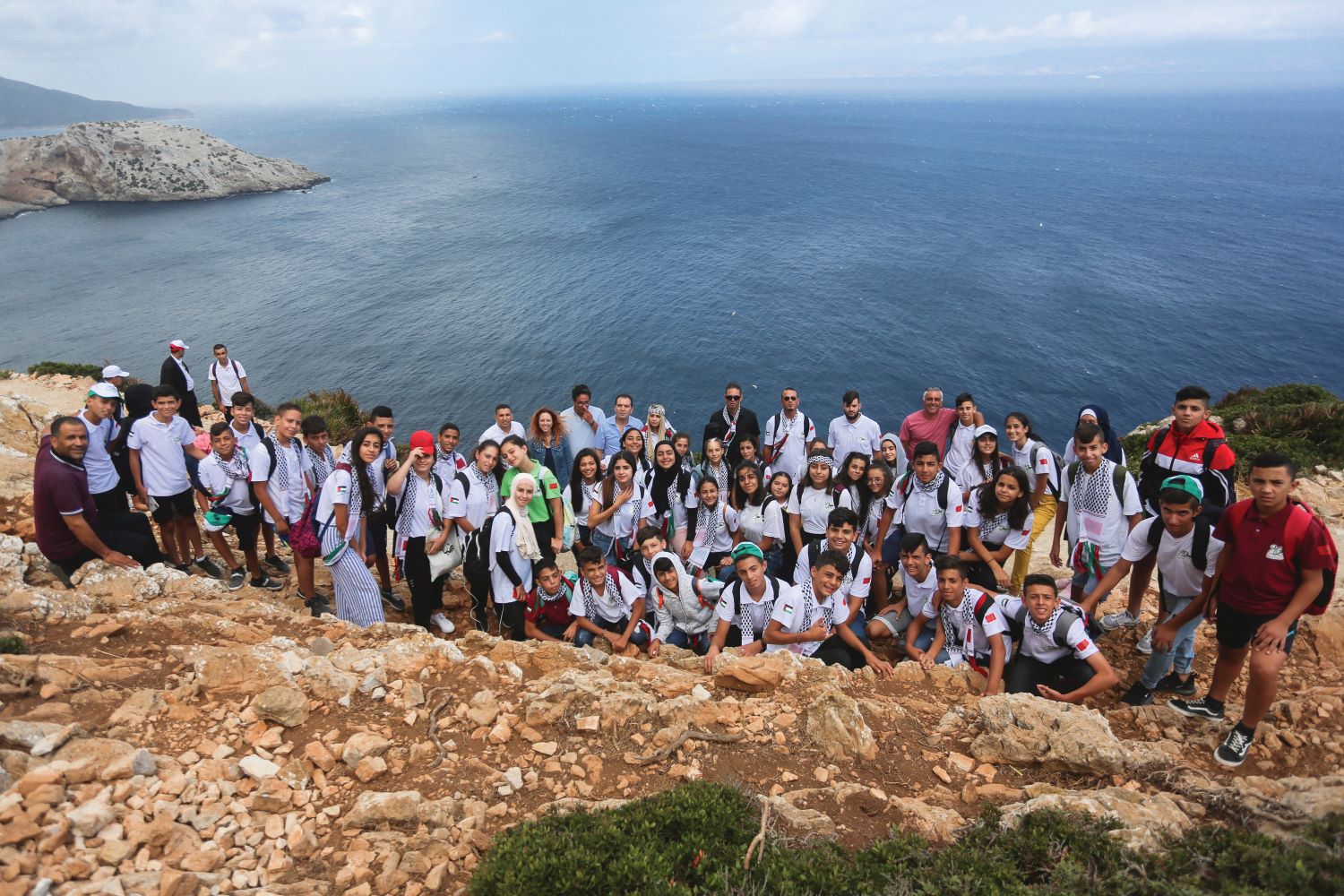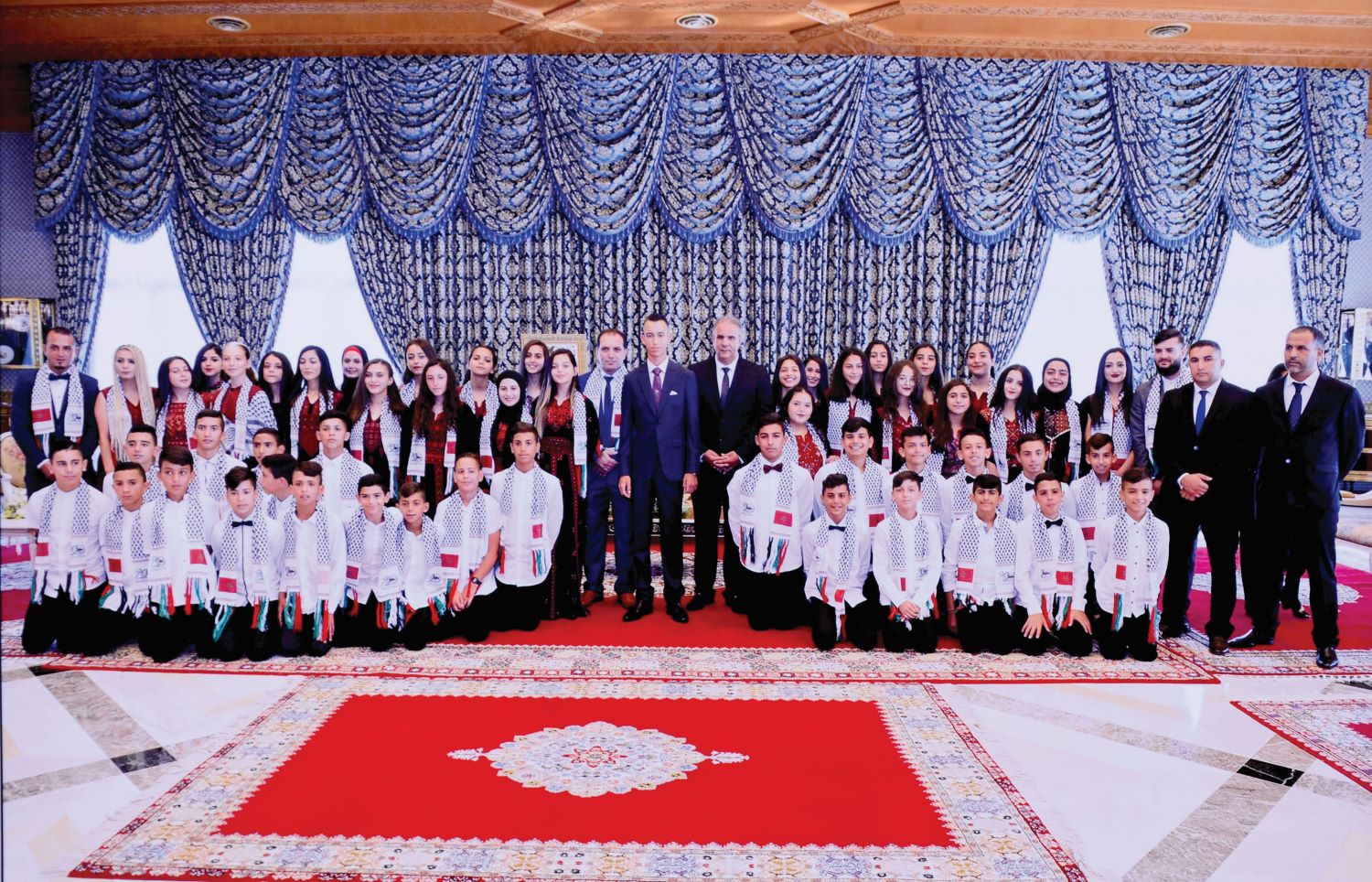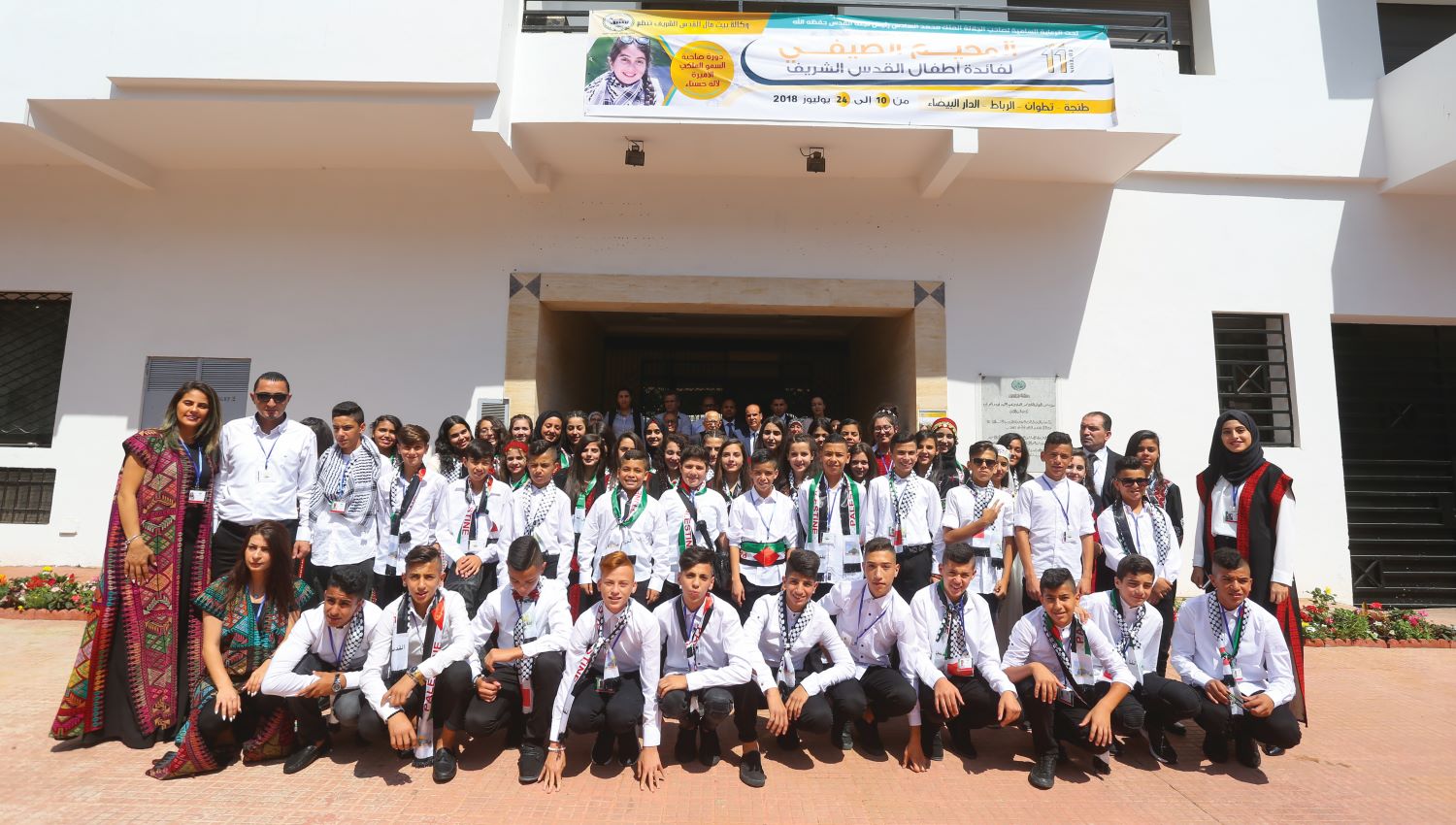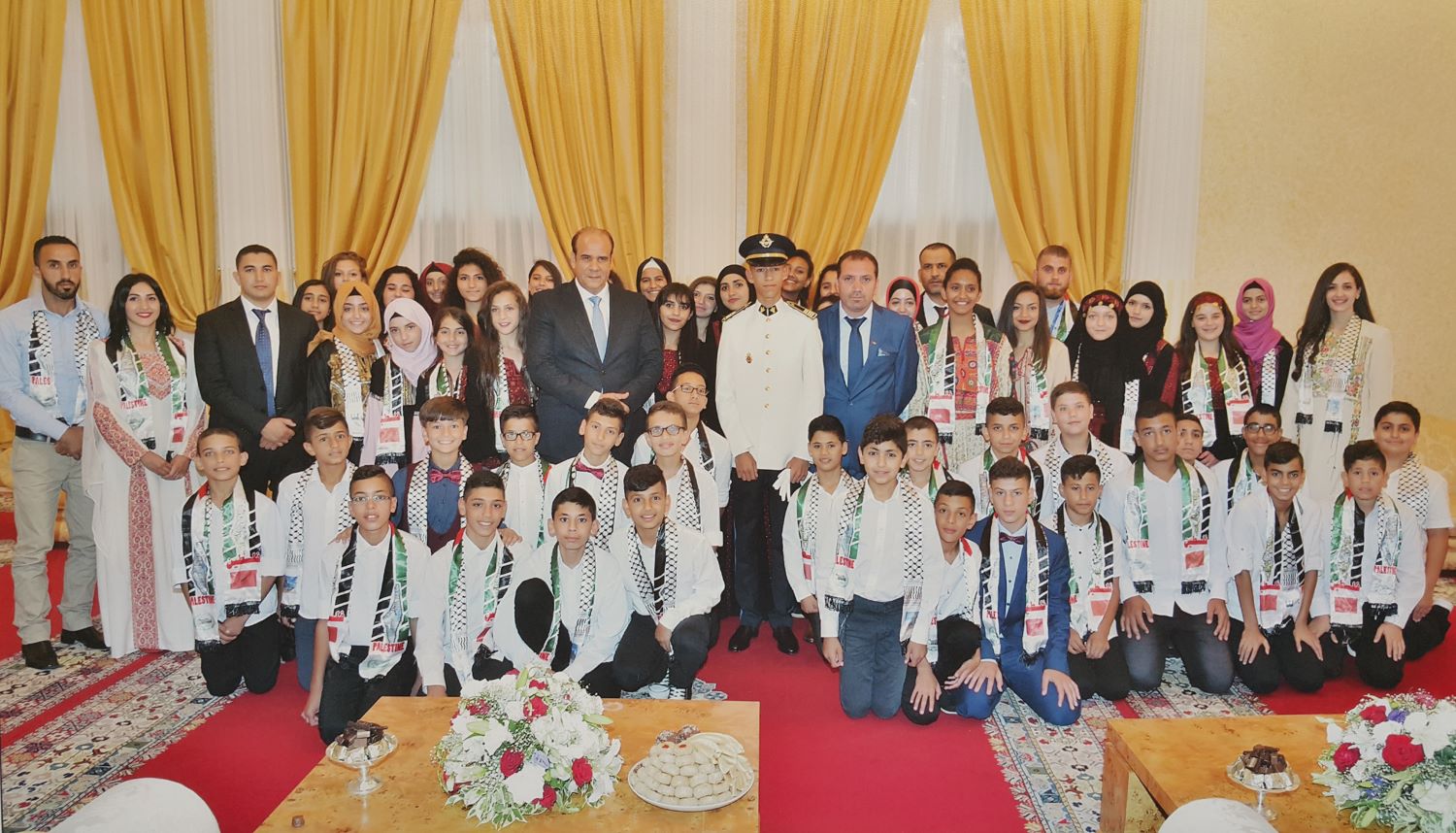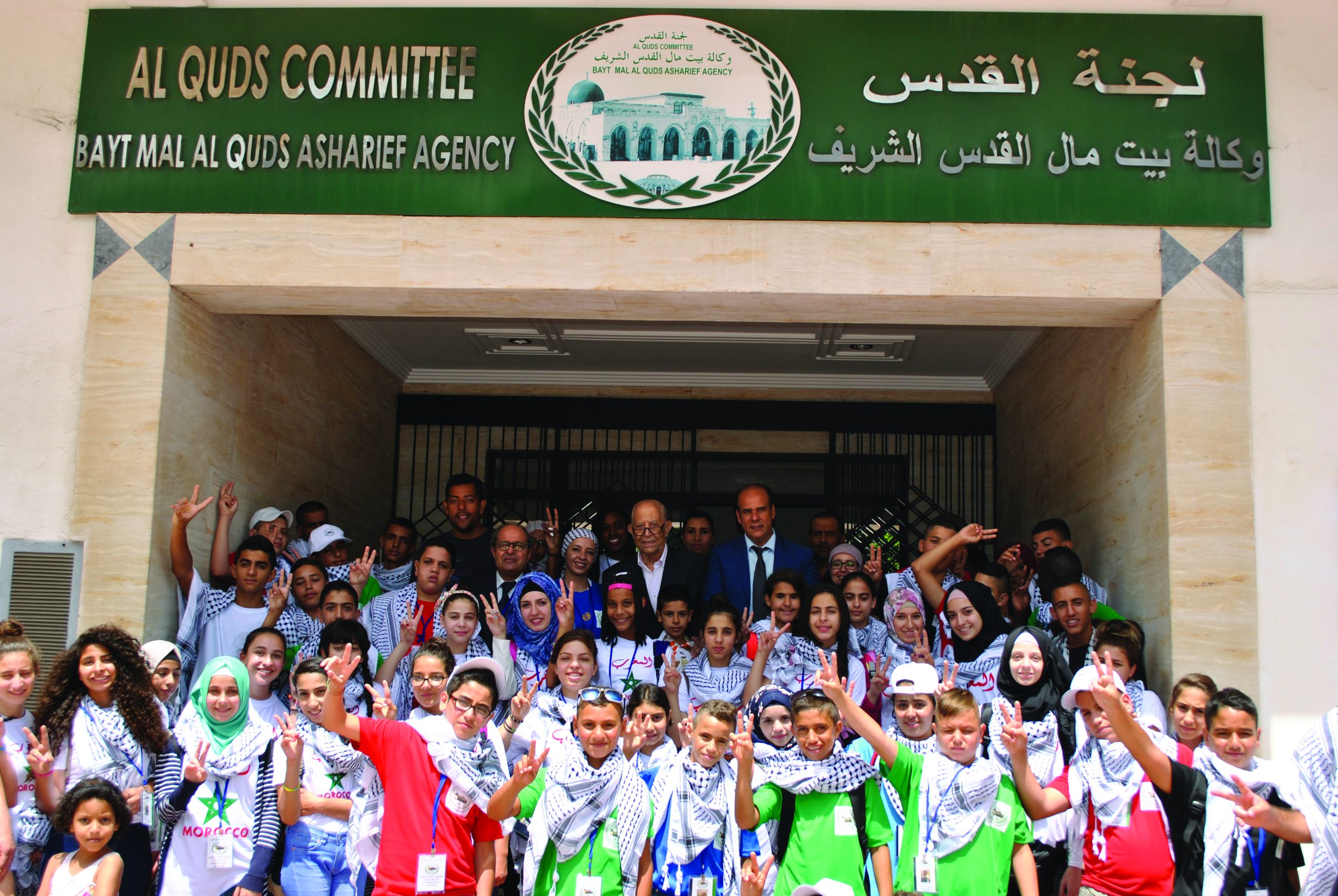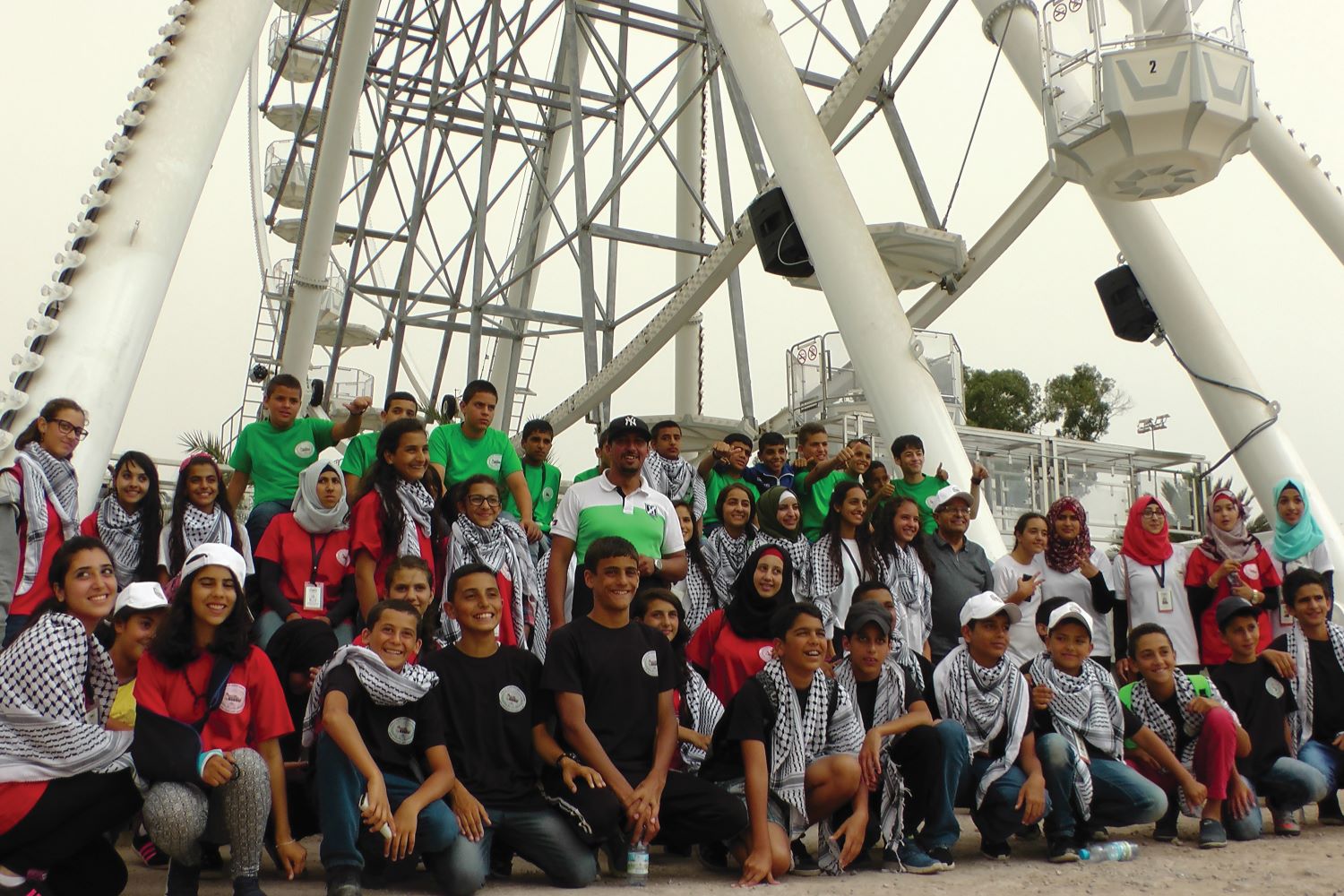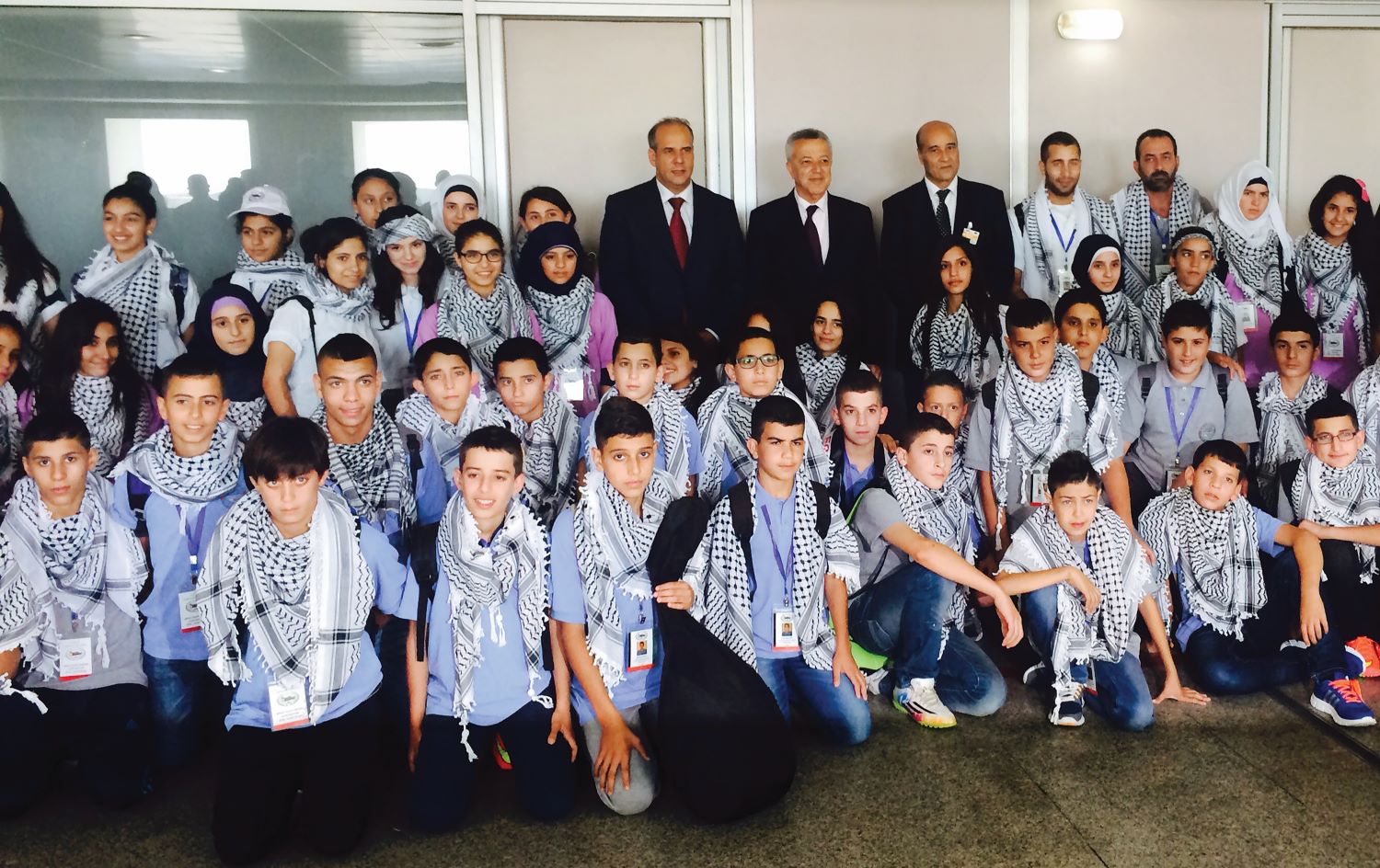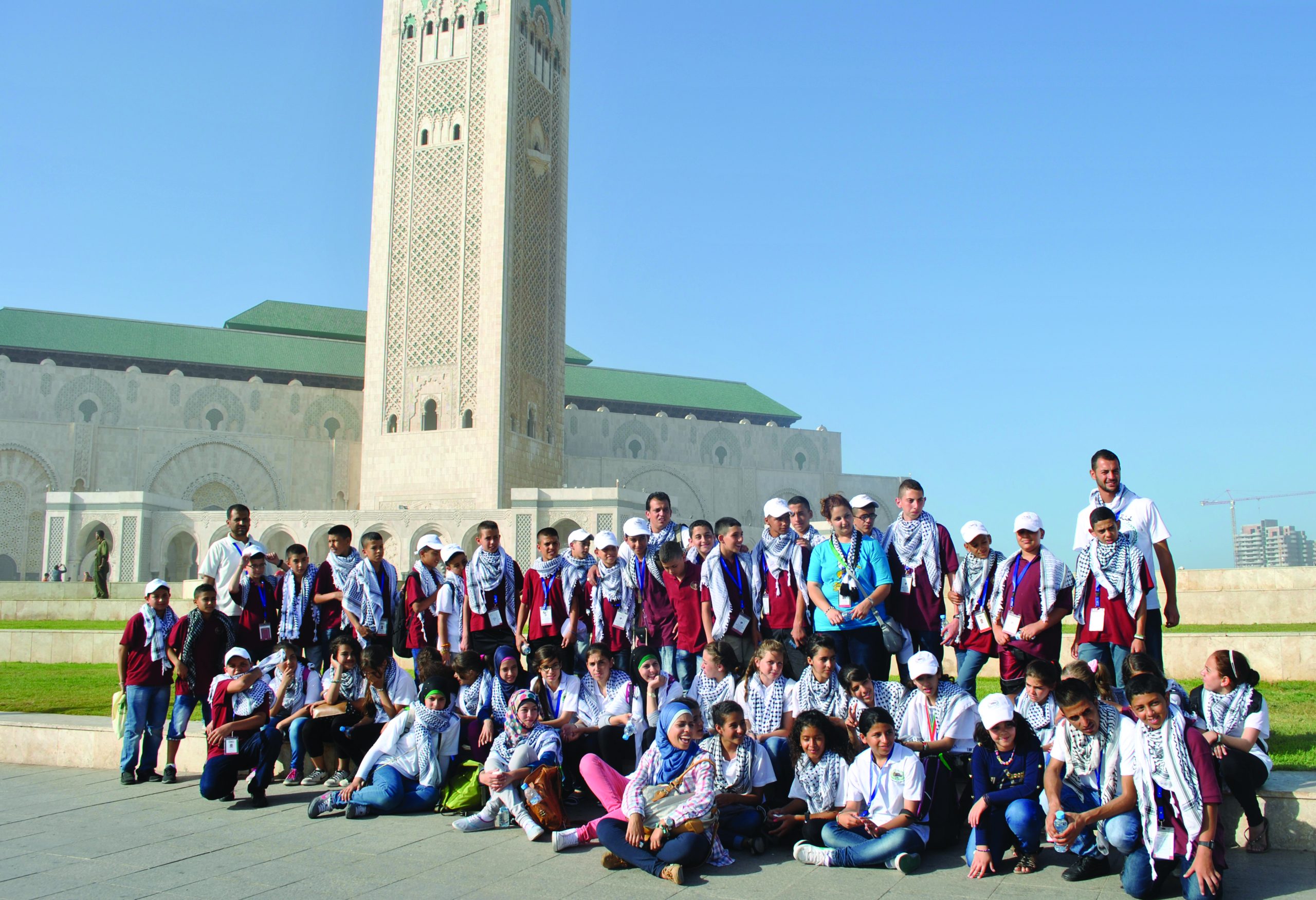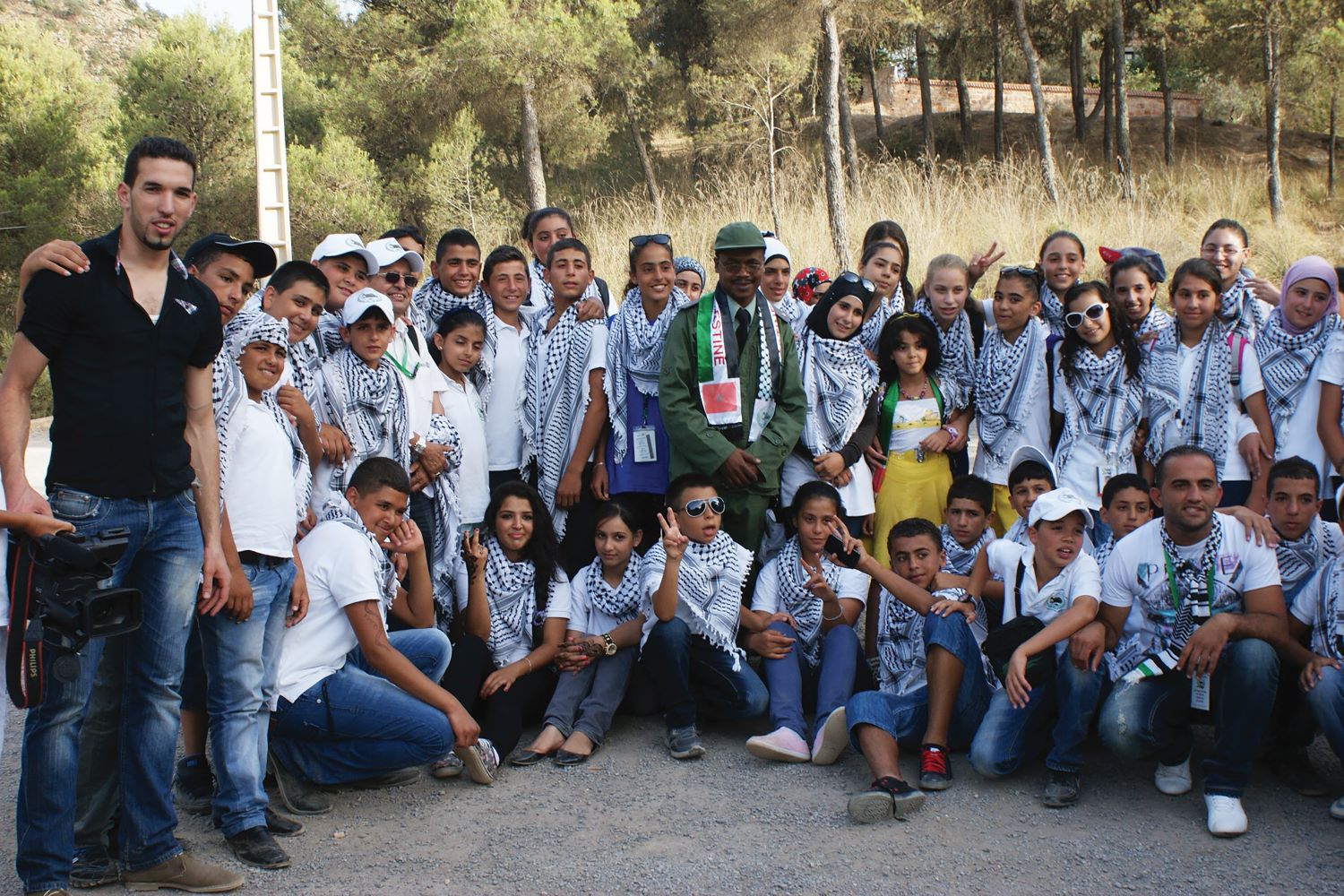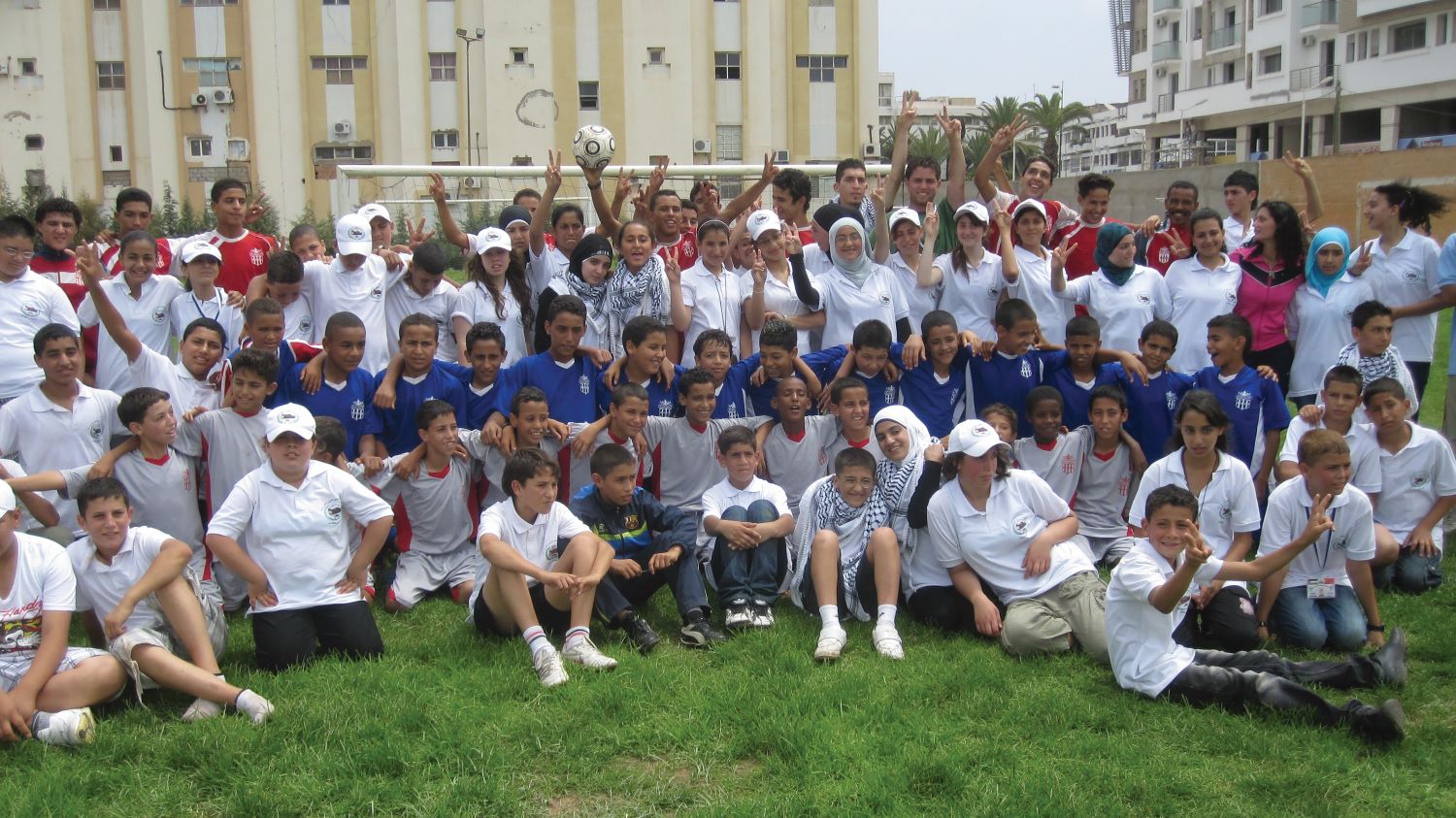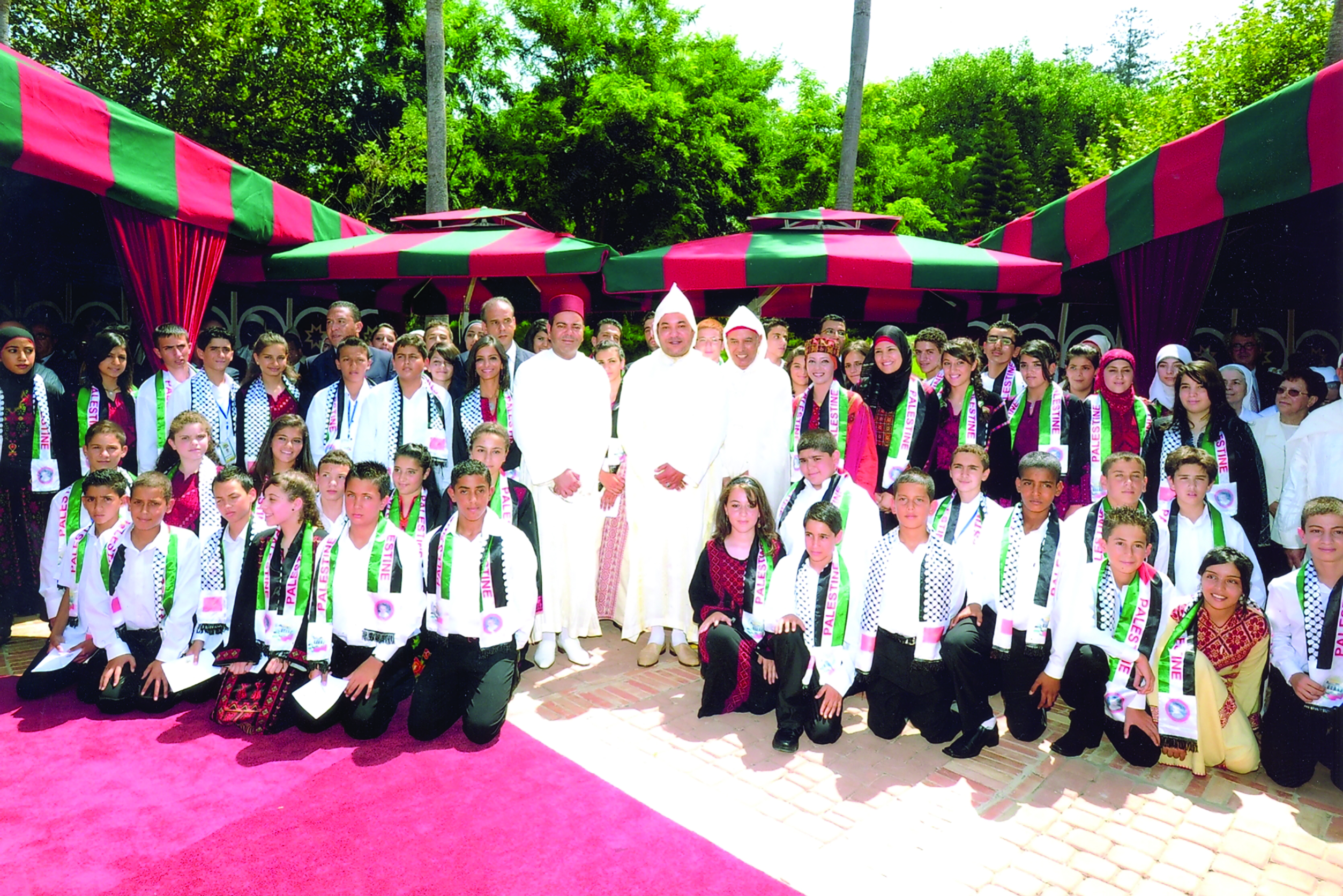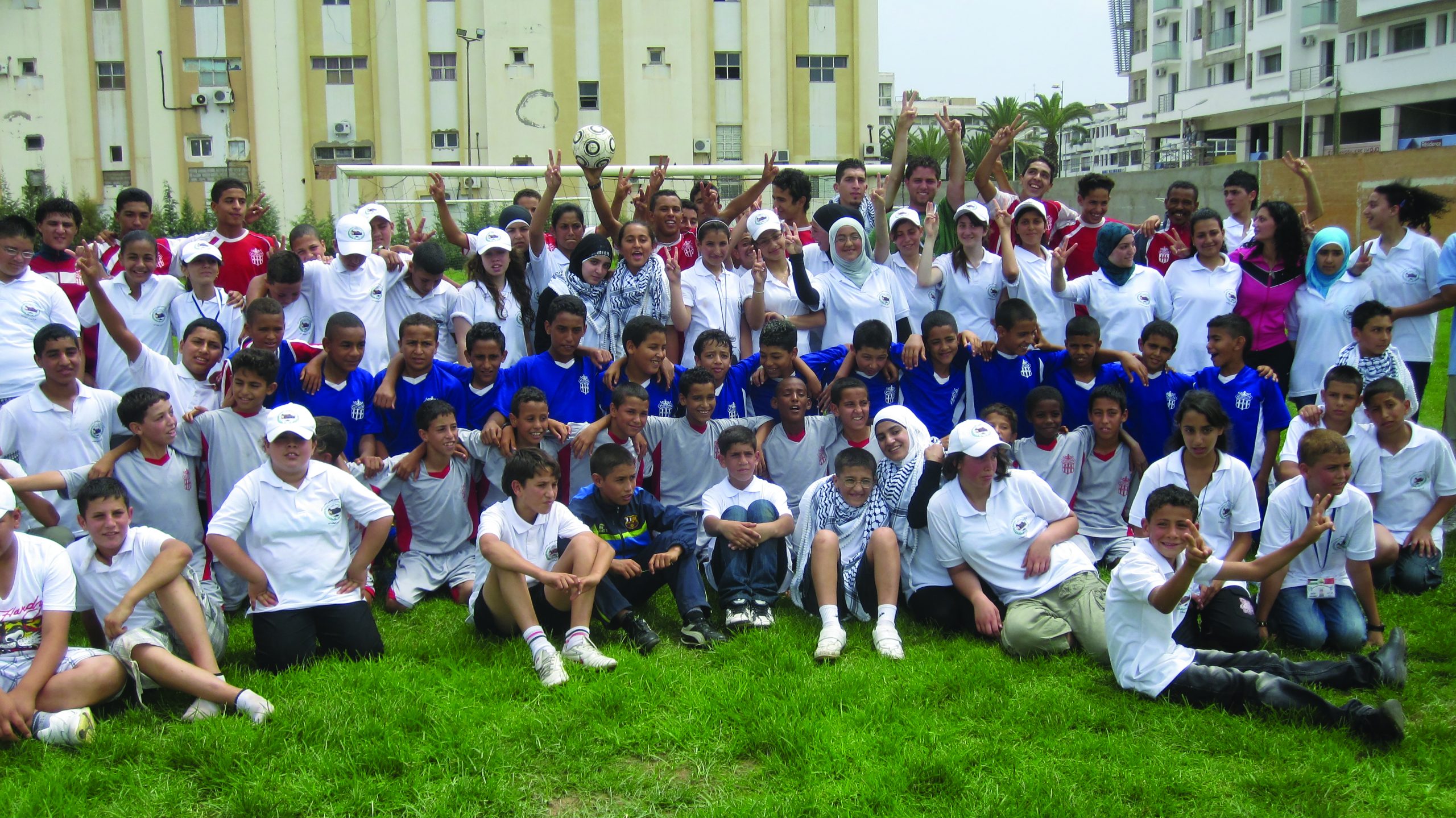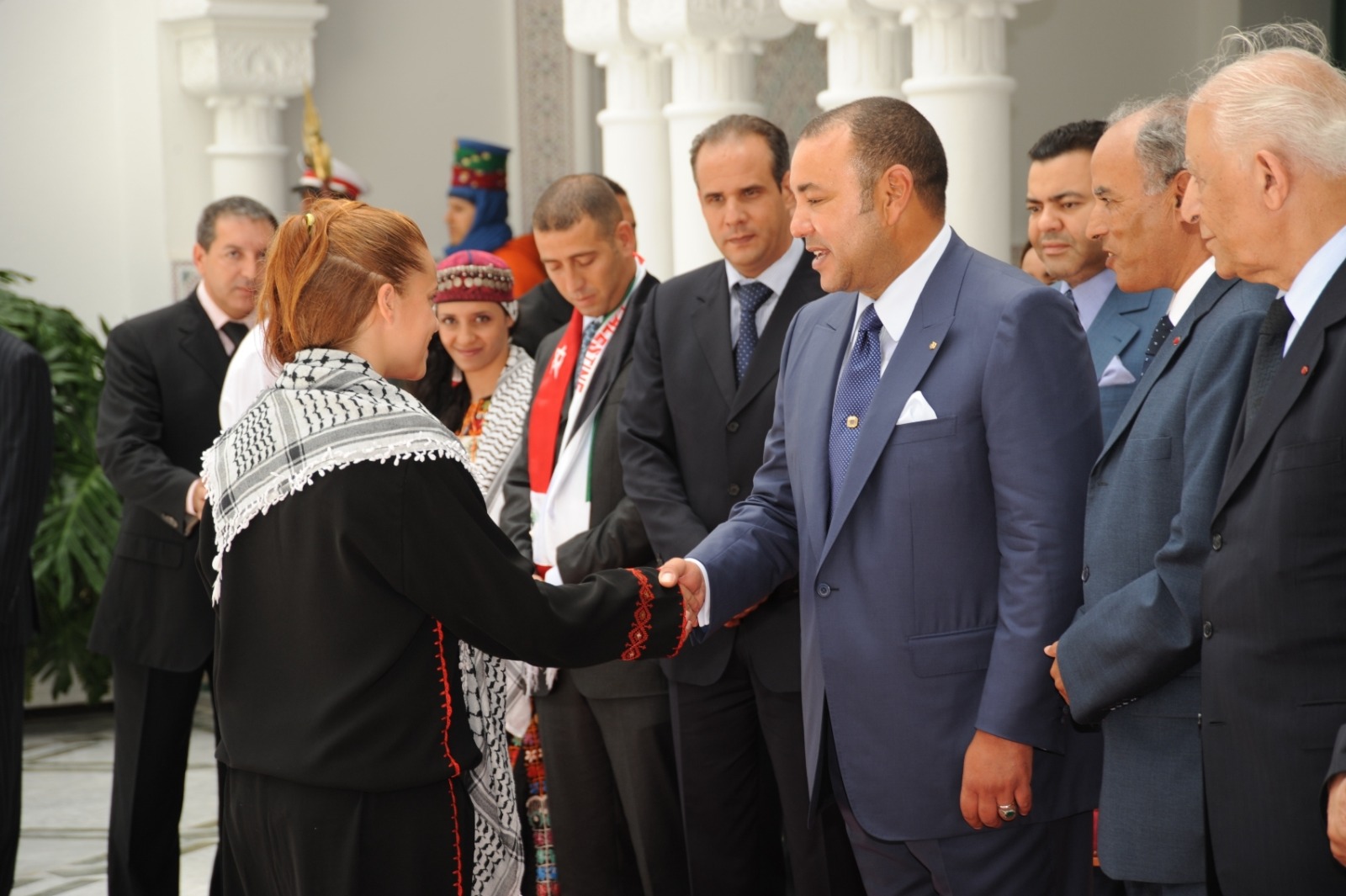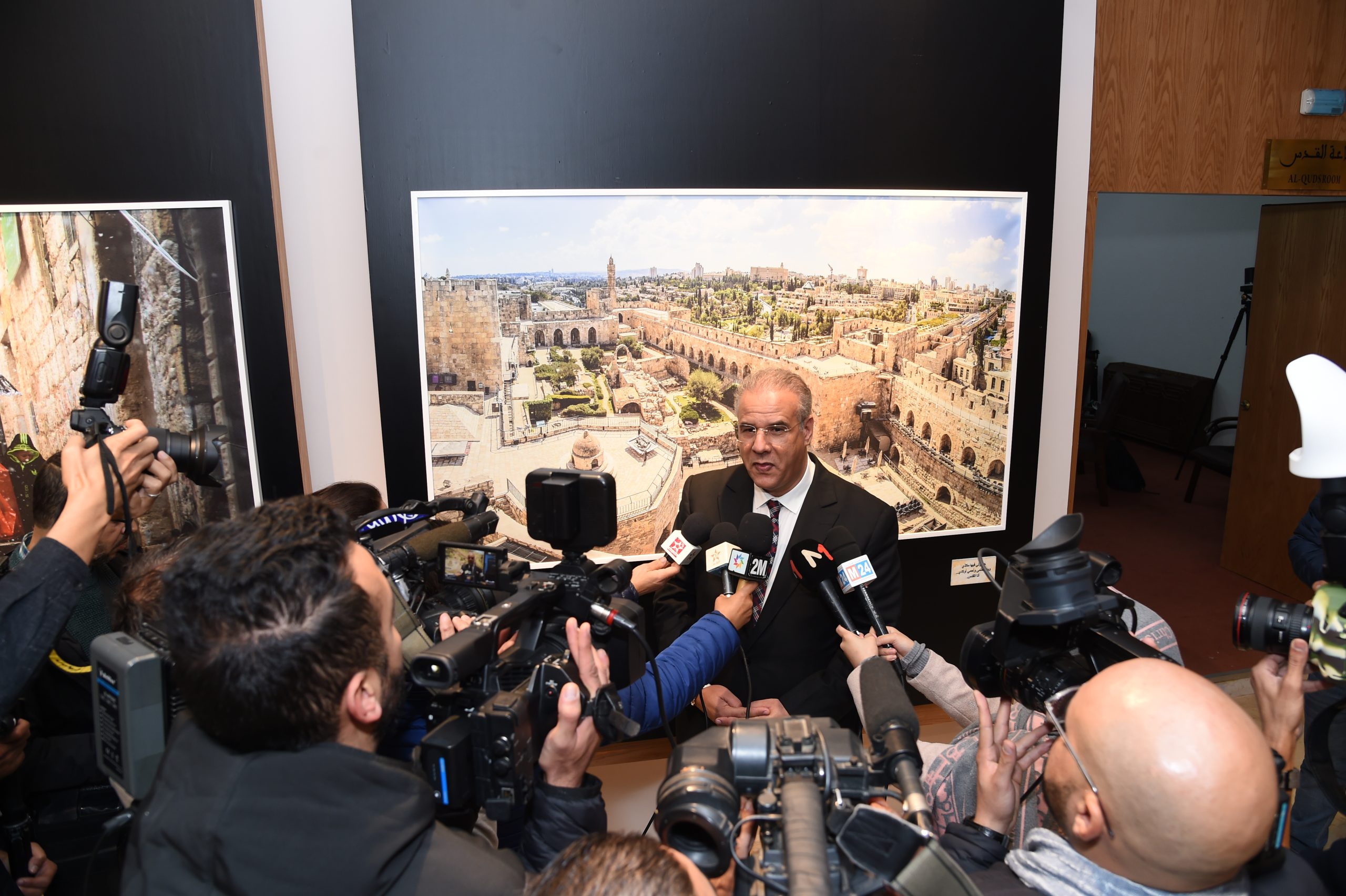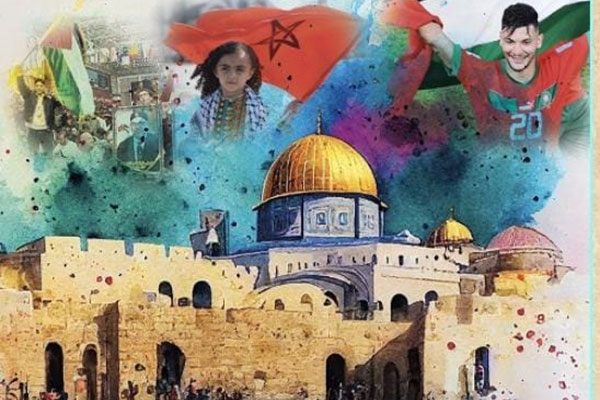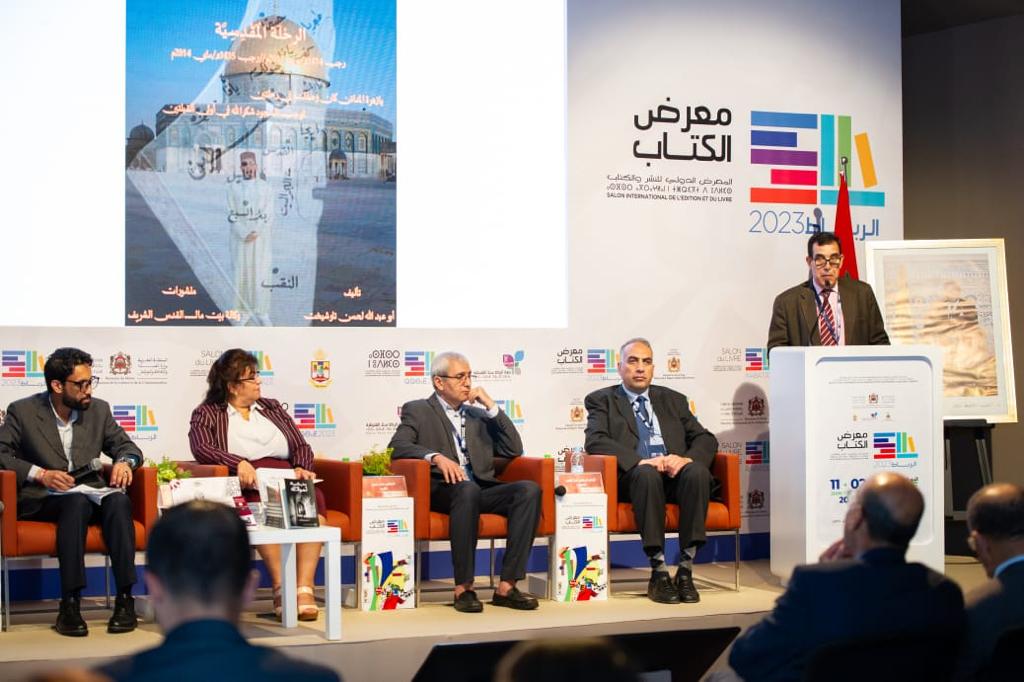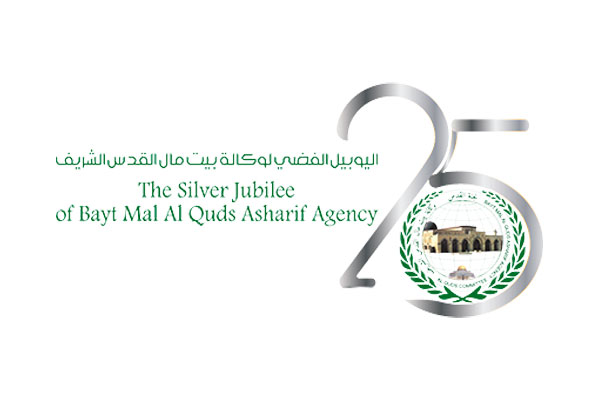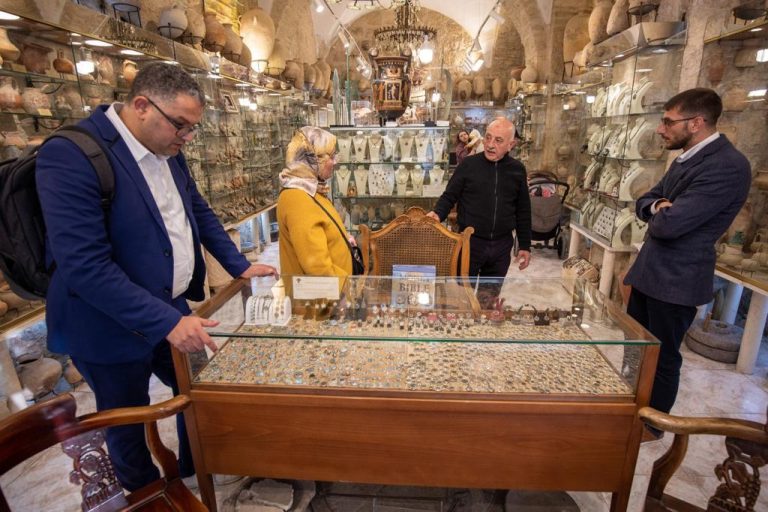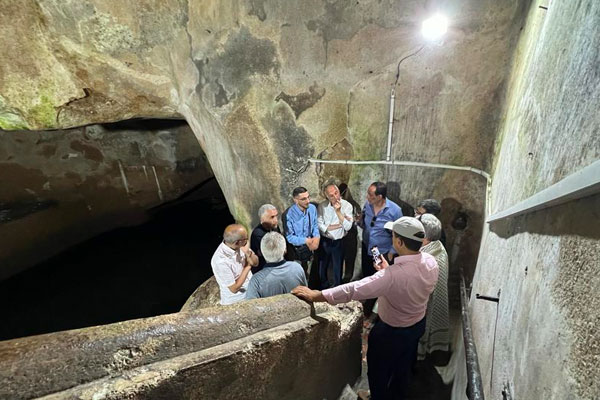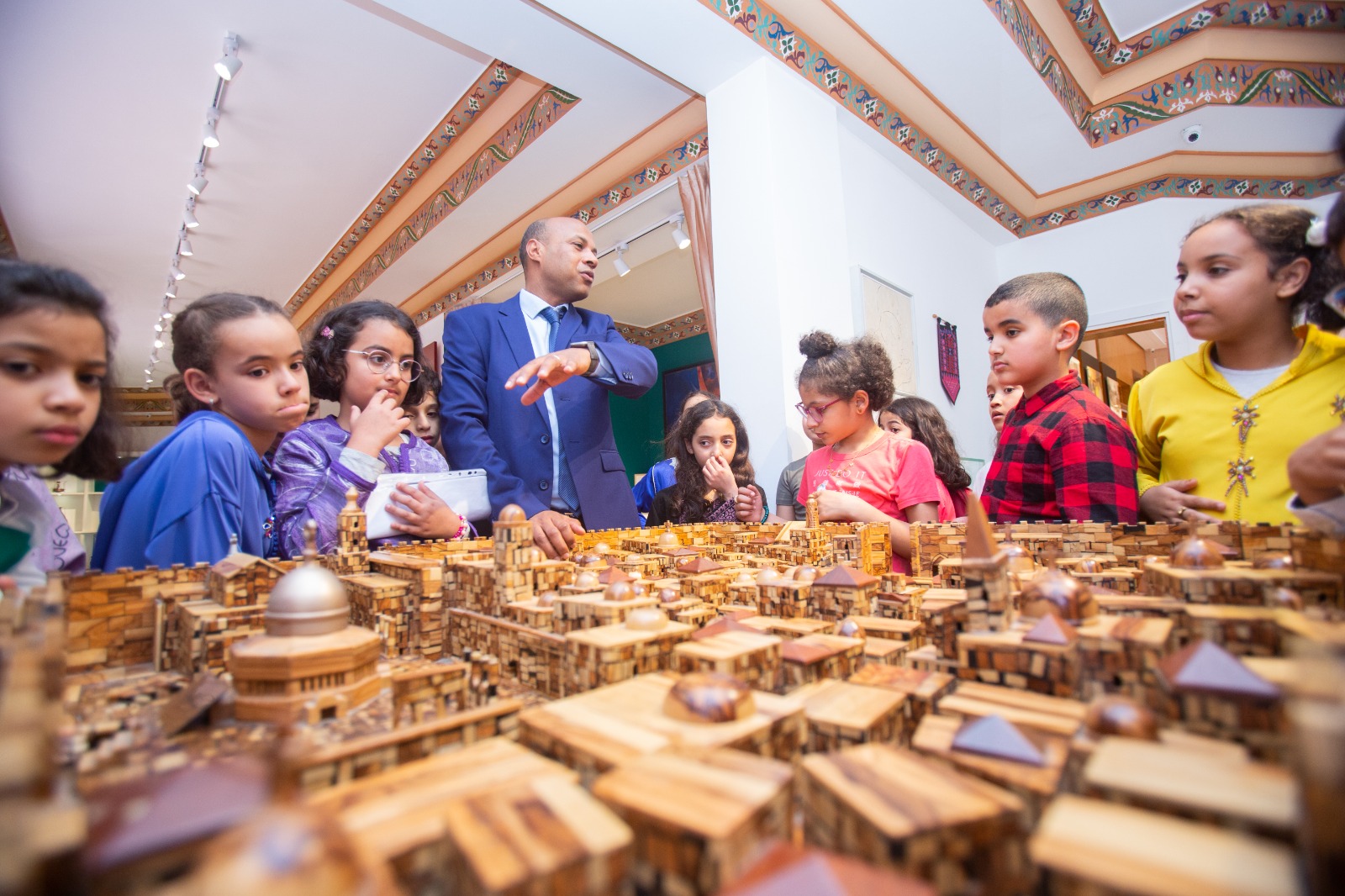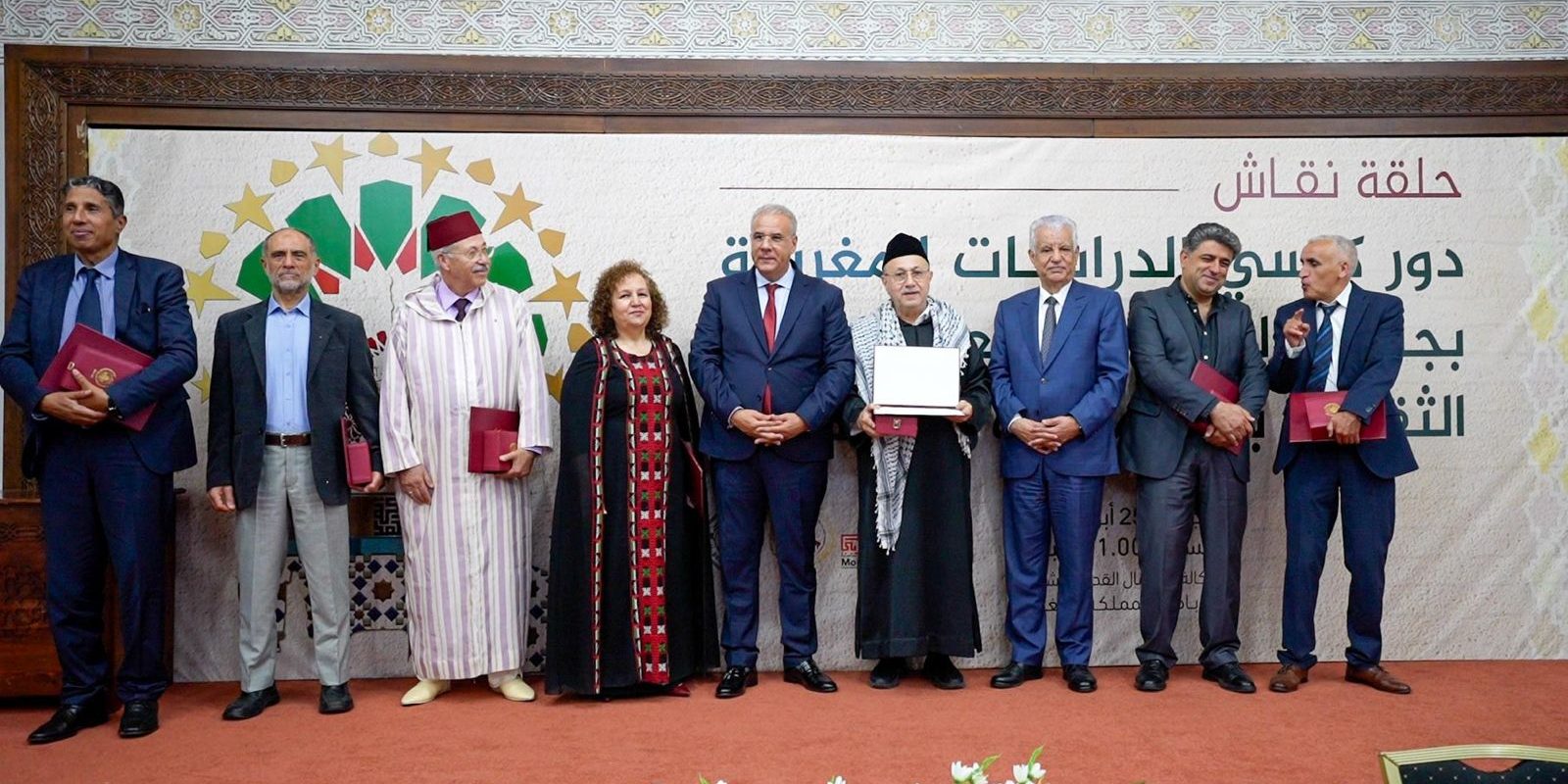Rabat – The members of the scientific committee for the Moroccan Studies Chair at Al-Quds University were officially inaugurated today, Friday, in Rabat. The ceremony was attended by the Ambassador of the State of Palestine to the Kingdom of Morocco, Jamal Al-Shobaki, the Director managing Bayt Mal Al-Quds Asharif Agency (BMAQ), Mohamed Salem Echarkaoui, and the Chairholder, Safaa Nassereddine.
The inauguration followed a roundtable discussion organized by the Agency at its headquarters under the theme: “The Role of the Moroccan Studies Chair at Al-Quds University in Strengthening Cultural Ties between Morocco and Palestine.”
The members of the committee were appointed, alongside its chair, Safaa Nassereddine, a Palestinian academic and former Minister of Communications and Information Technology in Palestine. The committee also includes Mo’tasem Al-Nasser, Professor of History at Al-Quds University; Walid Sharafa, a Palestinian novelist and academic specializing in literary criticism theories; and Bashir Barakat, a historian and author of several specialized works, including “The History of Moroccans in Jerusalem” (2021).
It also includes Saeed Khaled Al-Hassan, a Palestinian academic and political thinker specializing in political theory and the comparative civilizational value-based perspective.
Additionally, the committee includes several Moroccan members: Mohamed Essammar, a specialist in Islamic history, archaeology, and the preservation of Moroccan cultural heritage; Mohamed Boussalh, Director of the Center for the Restoration and Promotion of Architectural Heritage in the Atlas regions of Ouarzazate; and Mohamed Chiguer, an expert in aesthetics, philosophy, and discourse analysis.
At the opening of the session, Echarkaoui underscored BMAQ’s commitment to showcasing the richness of Moroccan culture in Palestine and the Levant—spanning literature, the arts, architecture, and history. He noted that this dedication draws from the enduring legacy of Moroccan pilgrims, travelers, and scholars who, throughout history, passed through or settled in Jerusalem.
Echarkaoui reaffirmed that the Agency and its partners in Morocco and Palestine are dedicated to contributing to the construction of a knowledge-based project nourished by the richness of Moroccan culture and its tributaries, grounded in the virtues and values of Al-Quds Asharif. This initiative aims to connect Morocco and the East through research and studies that draw inspiration from the glories of the past, engage with the challenges of the present, and anticipate the stakes of the future.
For his part, the Ambassador of the State of Palestine to Morocco, Jamal Al-Shobaki, stated that culture and intellectual engagement serve as a safety net to strengthen the resilience of Palestinians on their land.
The Ambassador affirmed his strong belief that the Moroccan Studies Chair at Al-Quds University will play a pivotal role in strengthening the historic ties between Morocco and Palestine, recognizing both as key partners in Jerusalem. He stressed that this partnership reflects the shared vision of establishing Jerusalem as the capital of an independent Palestinian state, in line with international law.
For her part, Safaa Nassereddine, Chair of the Moroccan Studies Chair at Al-Quds University, expressed her confidence that the Chair would become a “bright window” into the Moroccan presence woven into the fabric of Jerusalem. She emphasized that it would strengthen the role of knowledge in confronting efforts to erase or diminish this presence, through rigorous academic research that offers fresh insights into the influence of Moroccan culture across the Eastern Mediterranean.
The roundtable discussion concluded with the signing of a funding agreement for a study titled “The Kingdom of Morocco Through Eastern Eyes”, in favor of the Moroccan Studies Chair at Al-Quds University. The study will be conducted by a team of Moroccan and Palestinian researchers, under the supervision of Mashhour Habazi, the former Dean of the Faculty of Arts at Al-Quds University and a specialist in history and Islamic civilization.
